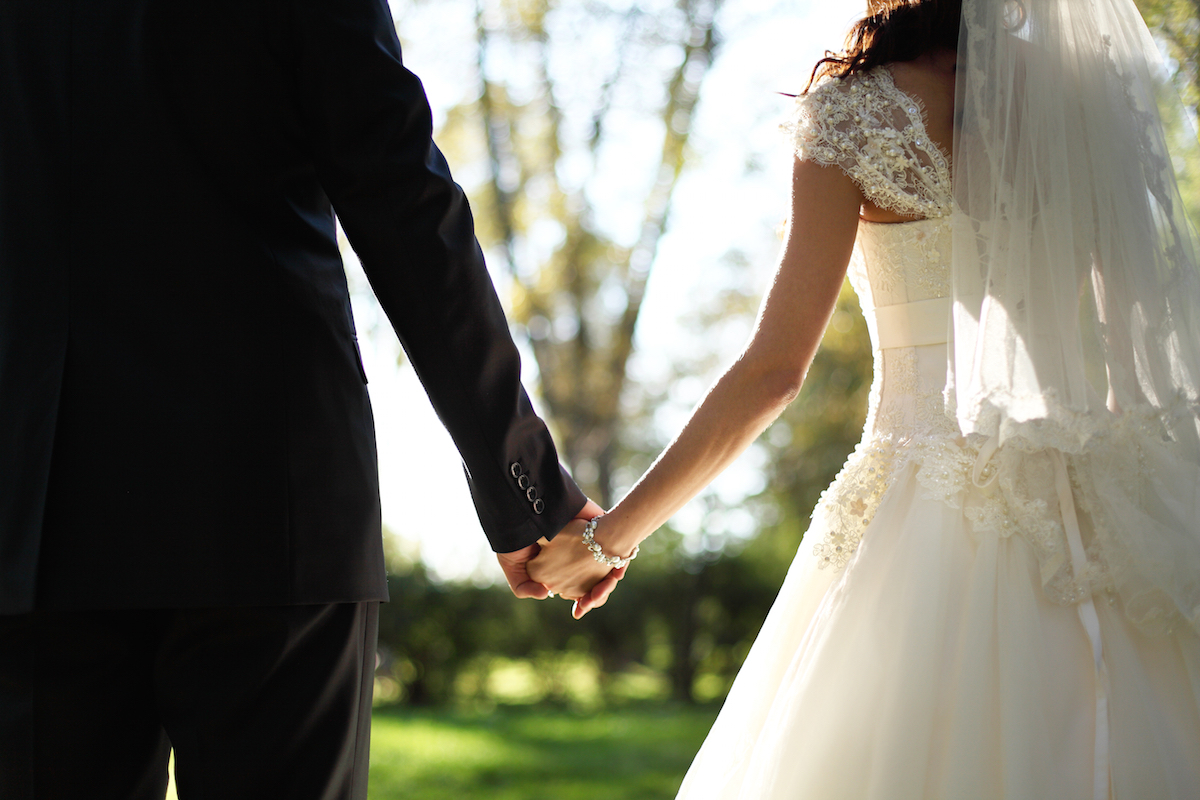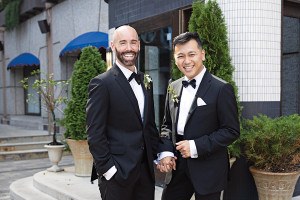Warm Up Those Cold Feet

Newlyweds holding hands photo via Shutterstock
You’re engaged and planning your dream wedding. This should be the most wonderful time of your life. Then why do you feel “off”?
Author of His Cold Feet: A Guide for the Woman Who Wants to Tie the Knot with the Guy Who Wants to Talk About It Later, Newton native and California marriage counselor Andrea Passman Candell, M.A., tackles the hard questions about what happens when “cold feet” occurs after engagement.
Here are her thoughts on this common concept and a few tips on warming up for that walk down the aisle.
What exactly is “cold feet”?
Cold feet is when a feeling of panic or overwhelm sets in and you feel stuck. It can feel different from one person to another.For one person, it can feel like a wave and be easier to ride through, and for another person, a case of cold feet can completely stop them from moving forward with making a change or a decision altogether.
How is that different from good old-fashioned “wedding jitters”?
Wedding jitters can feel like a mixture of excitement and nerves tangled together. With a case of wedding jitters, it’s much easier to get clarity. Wedding jitters usually come along with a fear of change and are very natural.
How do you get through cold feet?
To get through cold feet stop and acknowledge that making a change and getting married can bring up a mix of emotions. Change is scary! Cold feet can happen anytime, whether you’re getting married or deciding to move to a new city.
To get a handle on what’s coming up and get some clarity, ask yourself: Does my fear of getting married have to do with “what ifs” and issues outside of my relationship? For example, what if we don’t get along in 10 years, what if it doesn’t work out, what if my marriage fails like my parents’, what if we fight? The “what ifs” are all those things that haven’t happened, but you’re worried they will.
People can have negative associations when they think of marriage—maybe their parents had a tough divorce or they see their best friend unhappily married. So it’s very normal to have spiraling thoughts. With this, take a deep breath, and know that your relationship is different than these examples, and you can continue to enjoy, grow, and thrive in your own relationship.
When should cold feet not be ignored?
A person should not ignore cold feet if they’re identifying concerning issues about their partner or their relationship that’s causing them reason to hesitate. Ask yourself: Does my fear of getting married have to do with issues about my relationship and my partner directly? If there are concerning red flags—for example, We don’t have the same values, I often feel hurt in this relationship, I don’t feel like I can be my best self—then a chat with your partner, and even some couples’ counseling, can help clarify what’s going on here.
Fears (rational or not) can be a sign that the relationship isn’t as healthy it should or could be. If fears are tied in with concerns about your partner and your relationship, clarify and consider the value of these concerns.We each have our own thresholds for what gets on our nerves. While dirty socks left on the bathroom floor and being late once in awhile may push your buttons, they obviously carry a different weight than red flags.
Know that cold feet can be very normal when facing change. If you identify the underlying issue, whether it’s fear of change or a specific issue in the relationship that needs work, you can start to move through it with ease.
What stories do you want to see in Boston Weddings? Send us tips at weddings@bostonmagazine.com.
Getting married? Start and end your wedding planning journey with Boston Weddings' guide to the best wedding vendors in the city.


